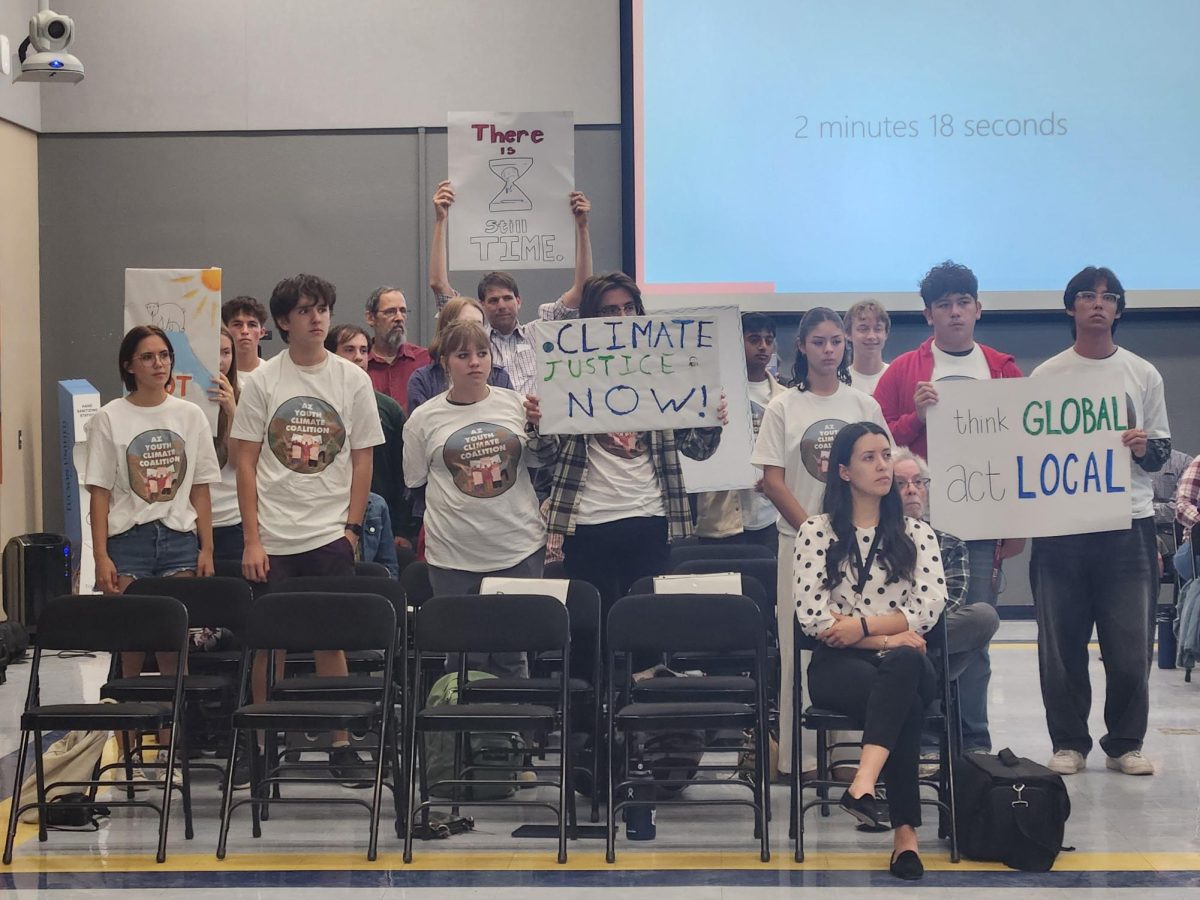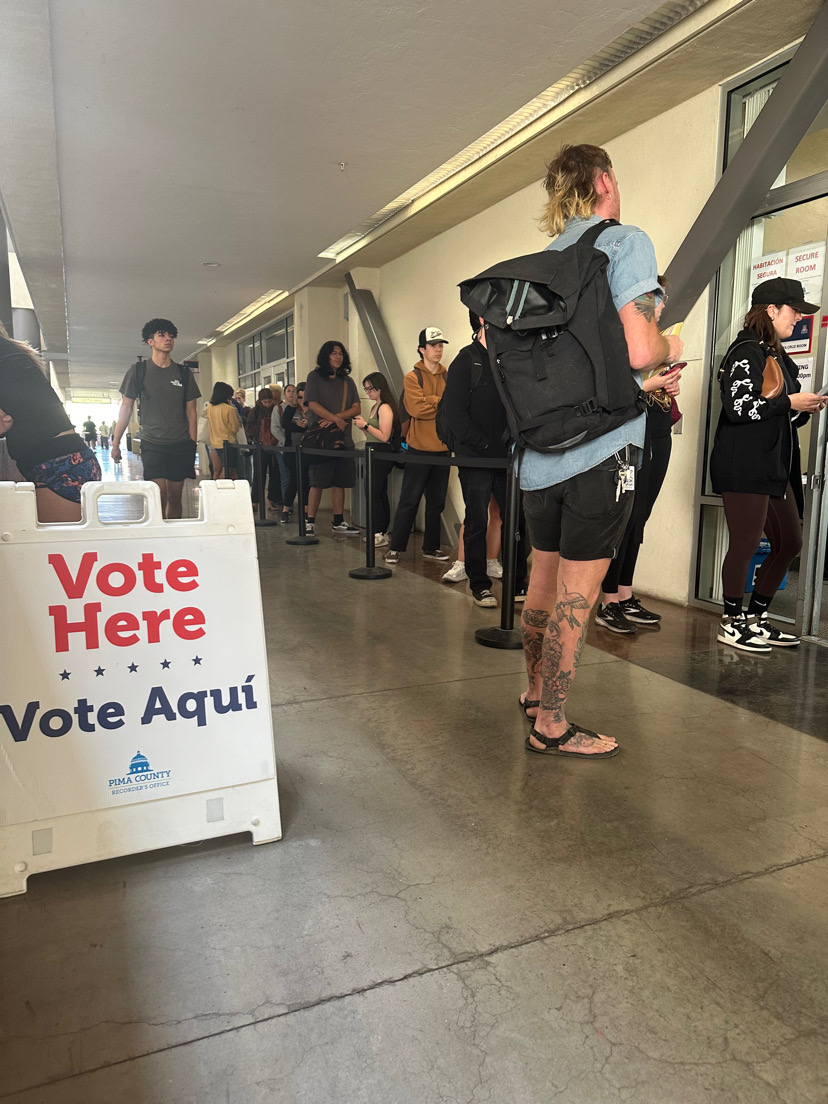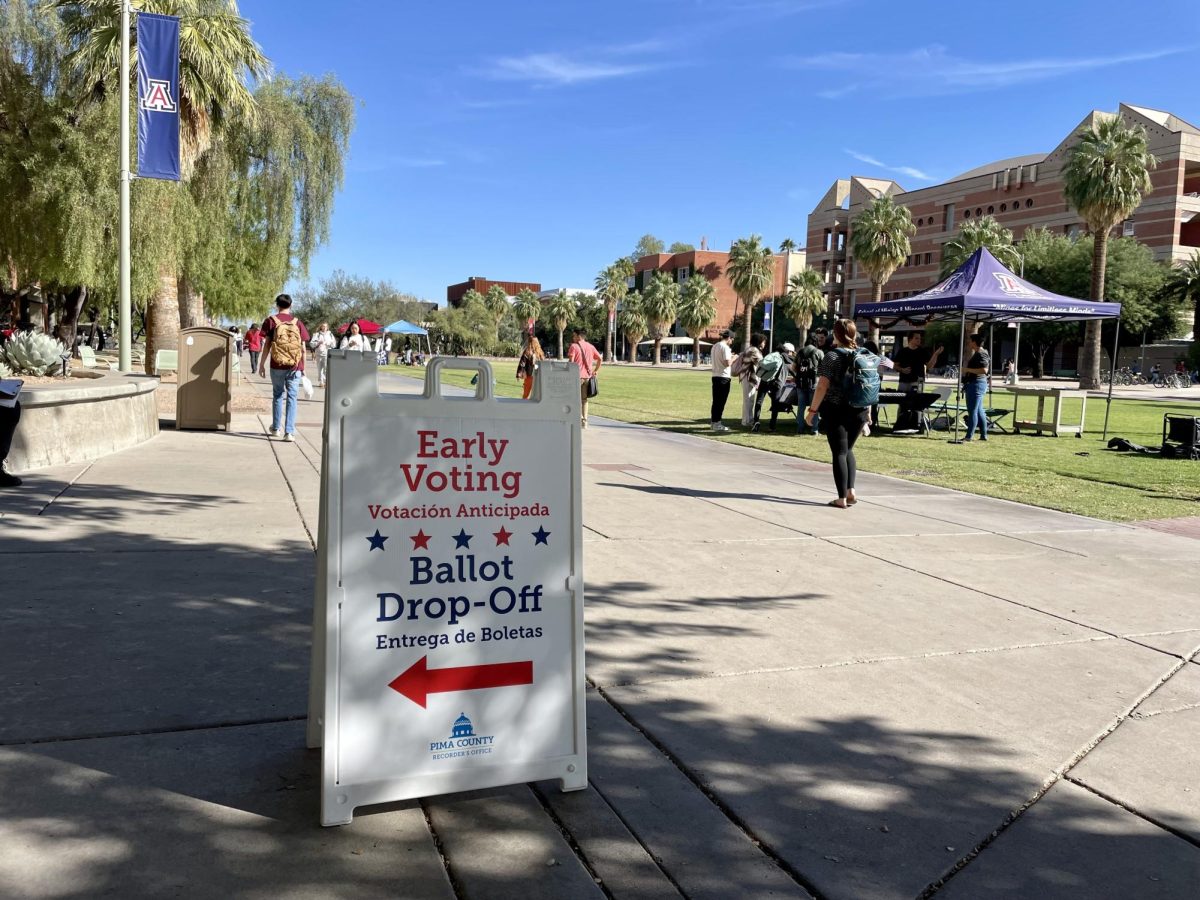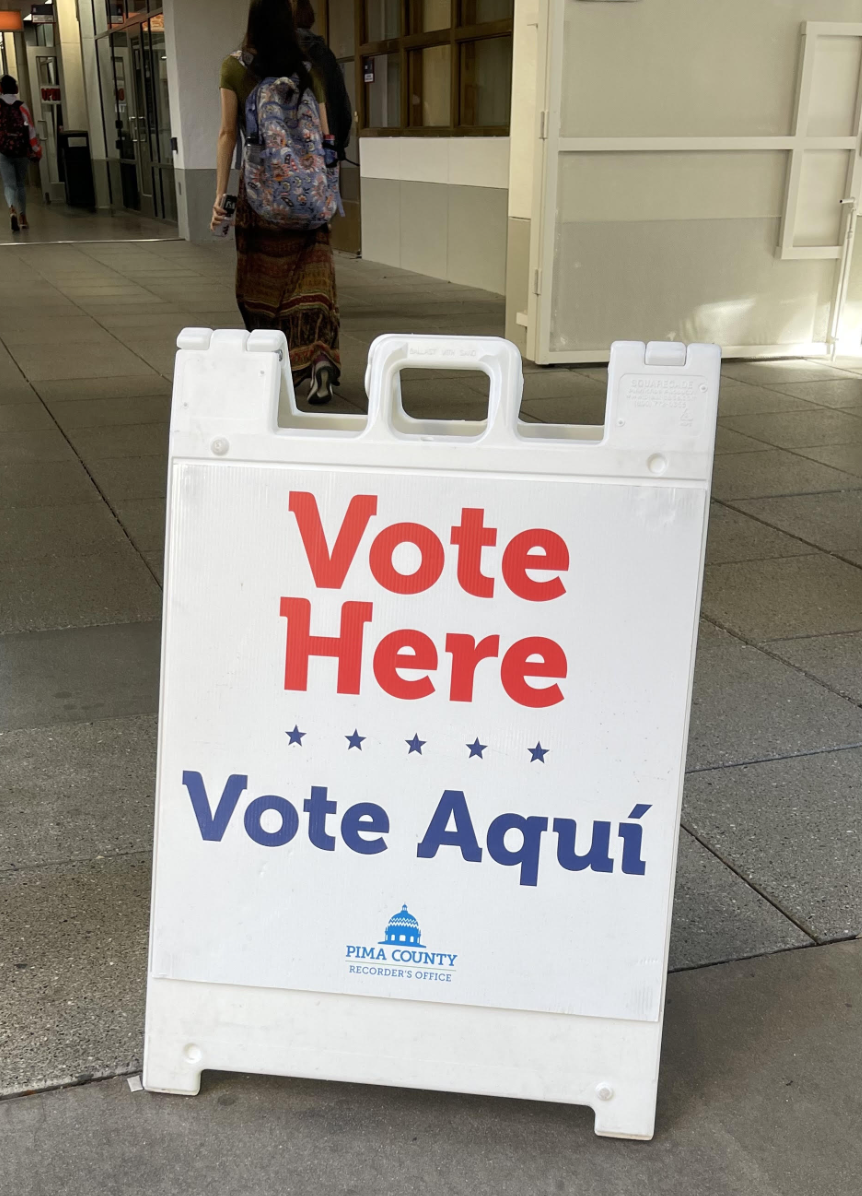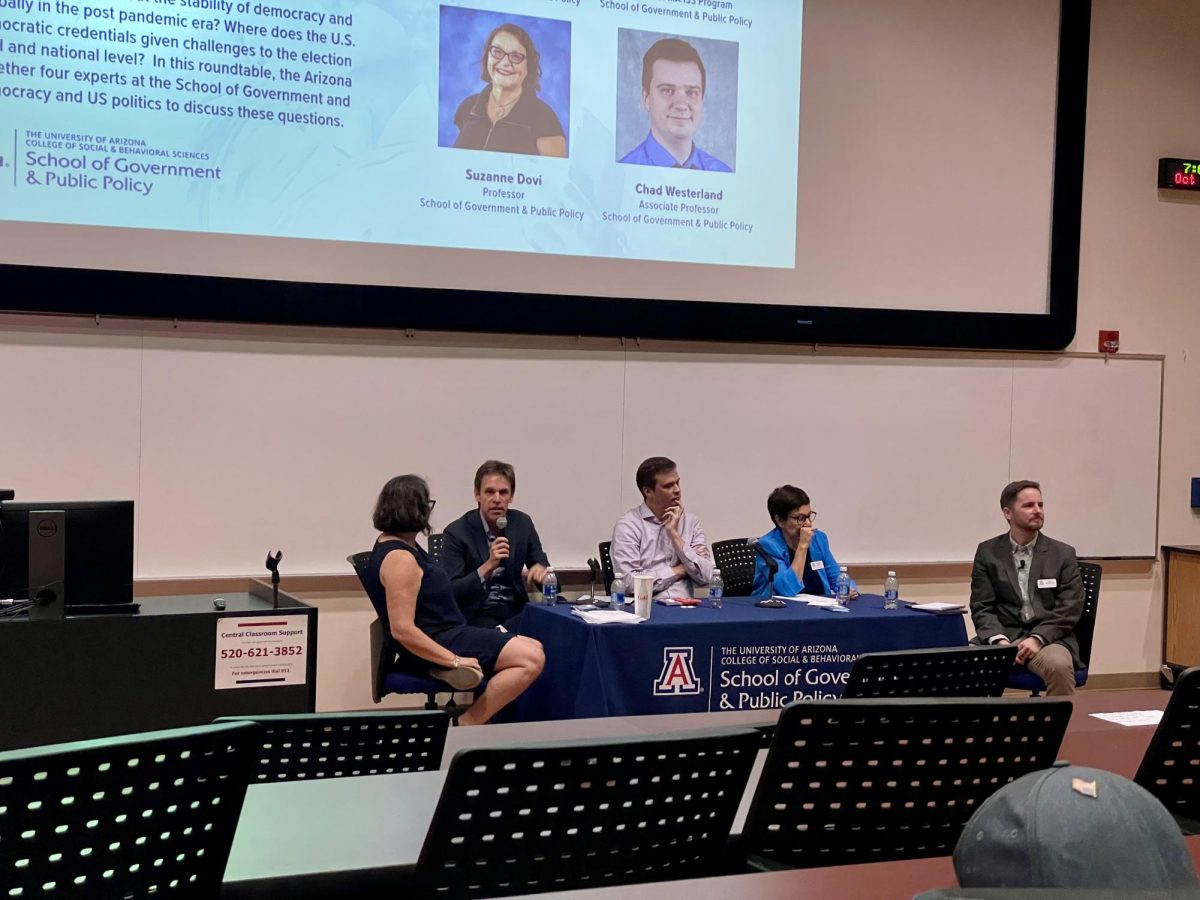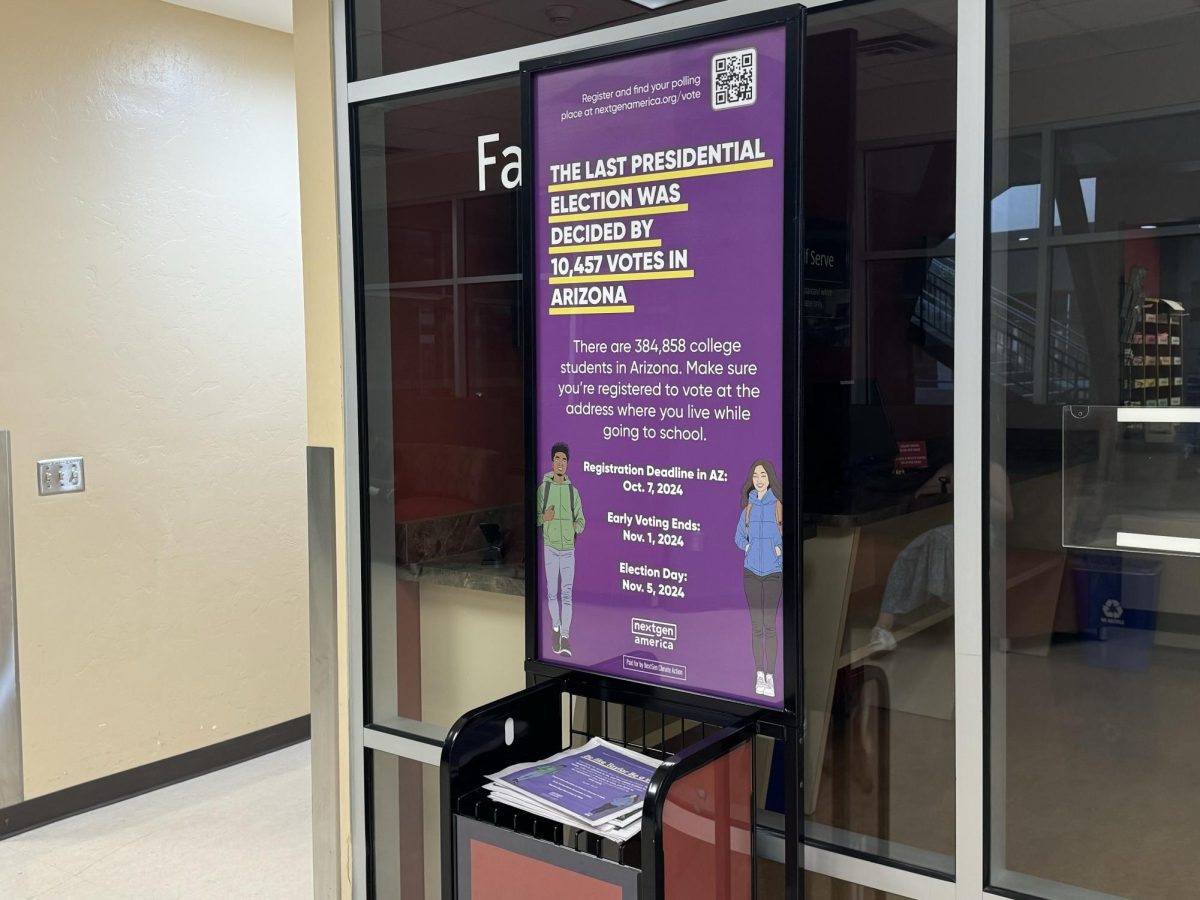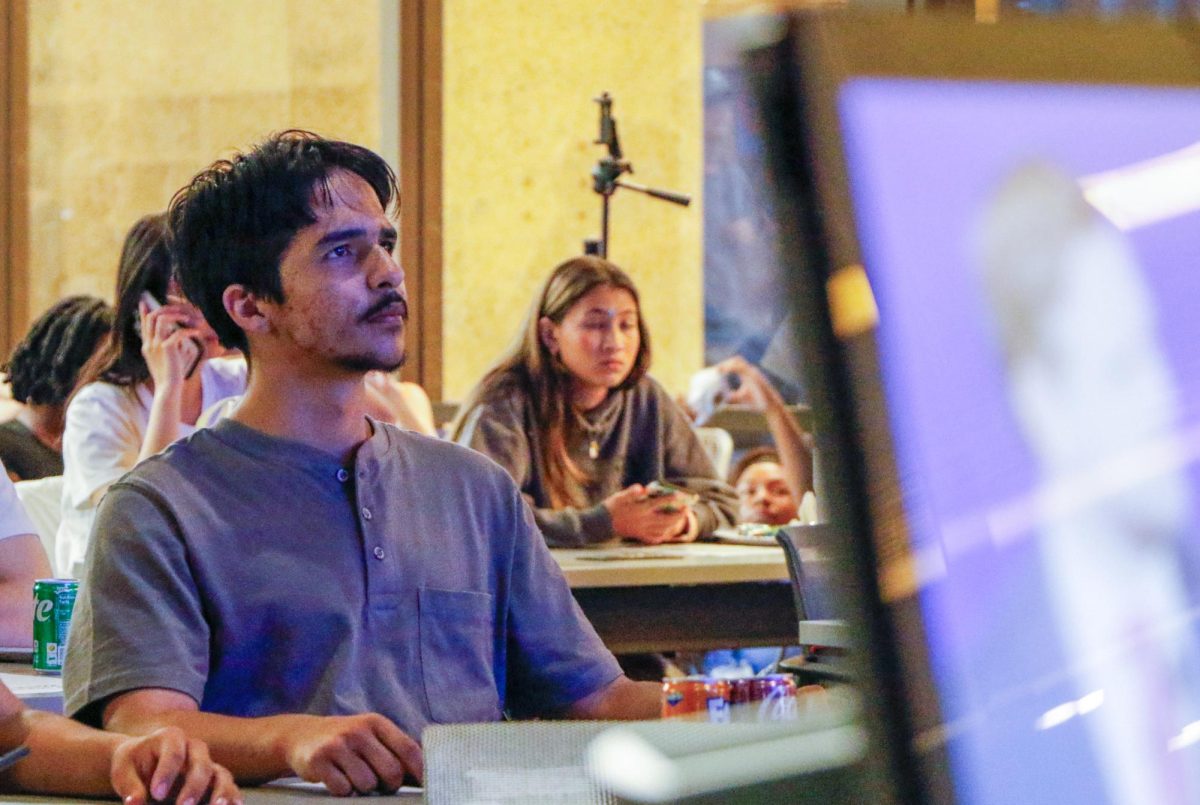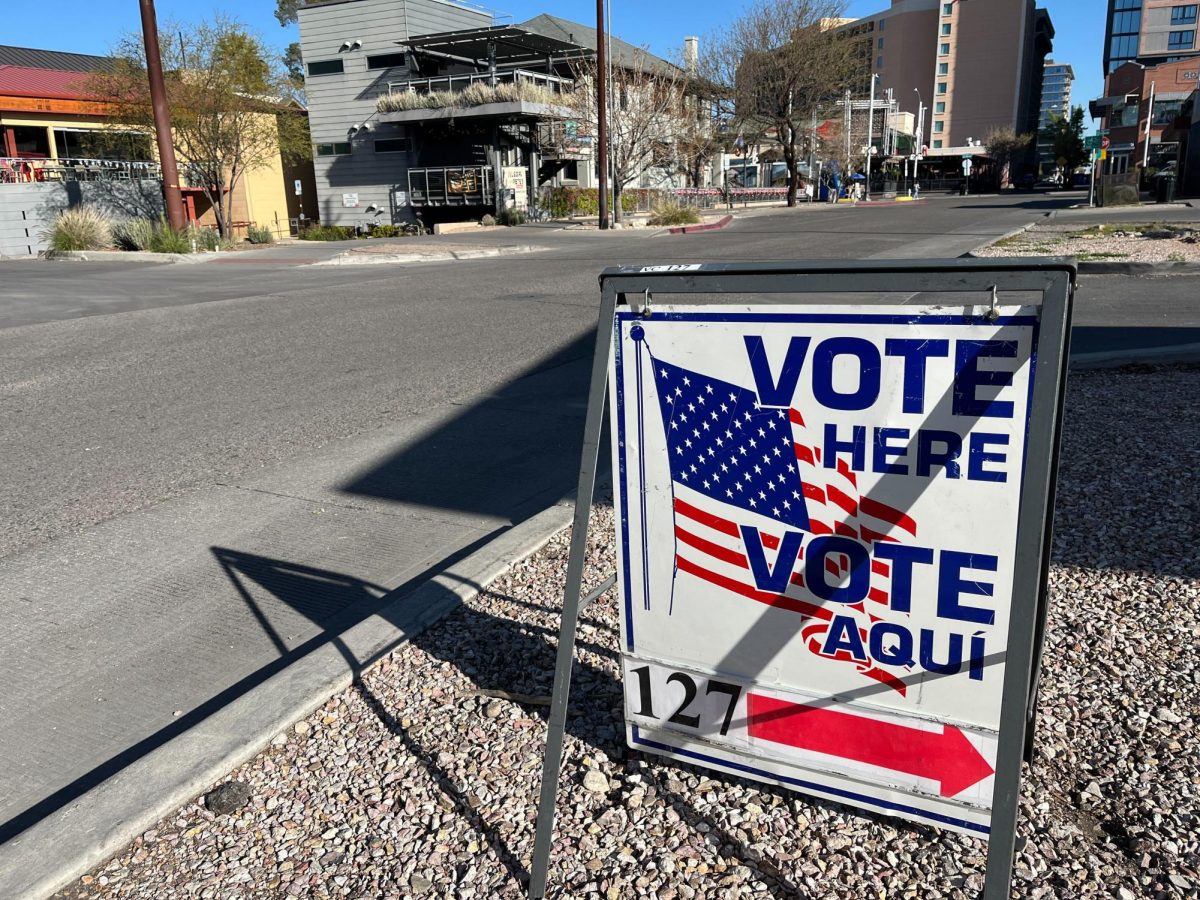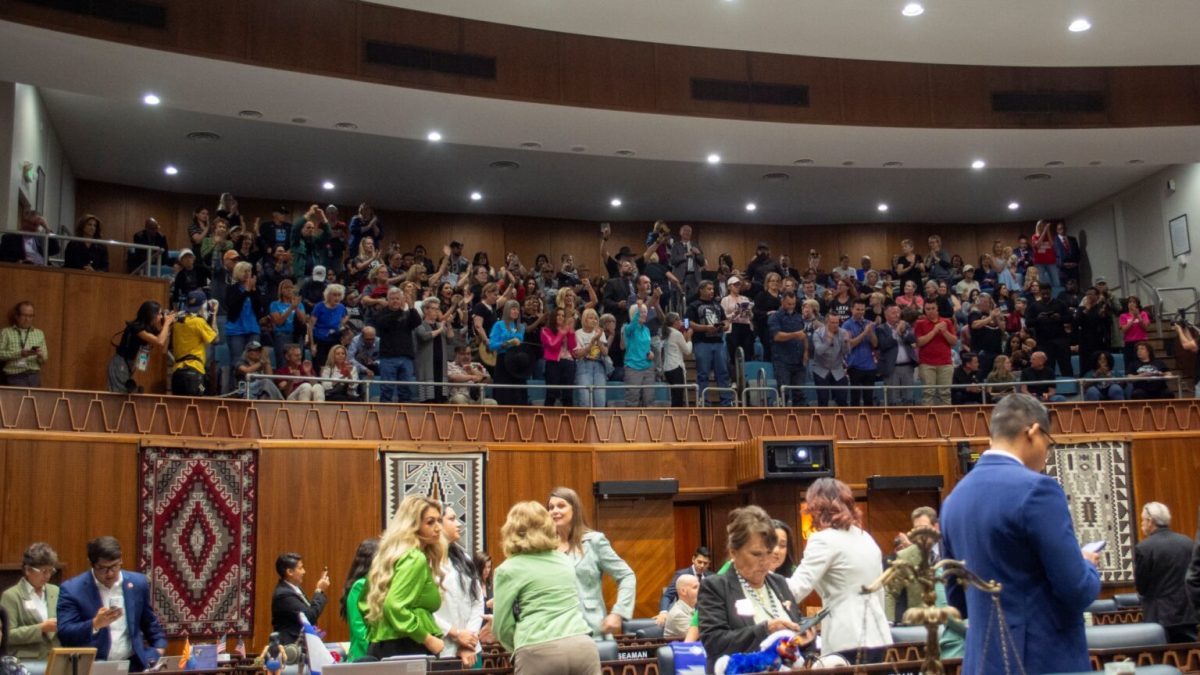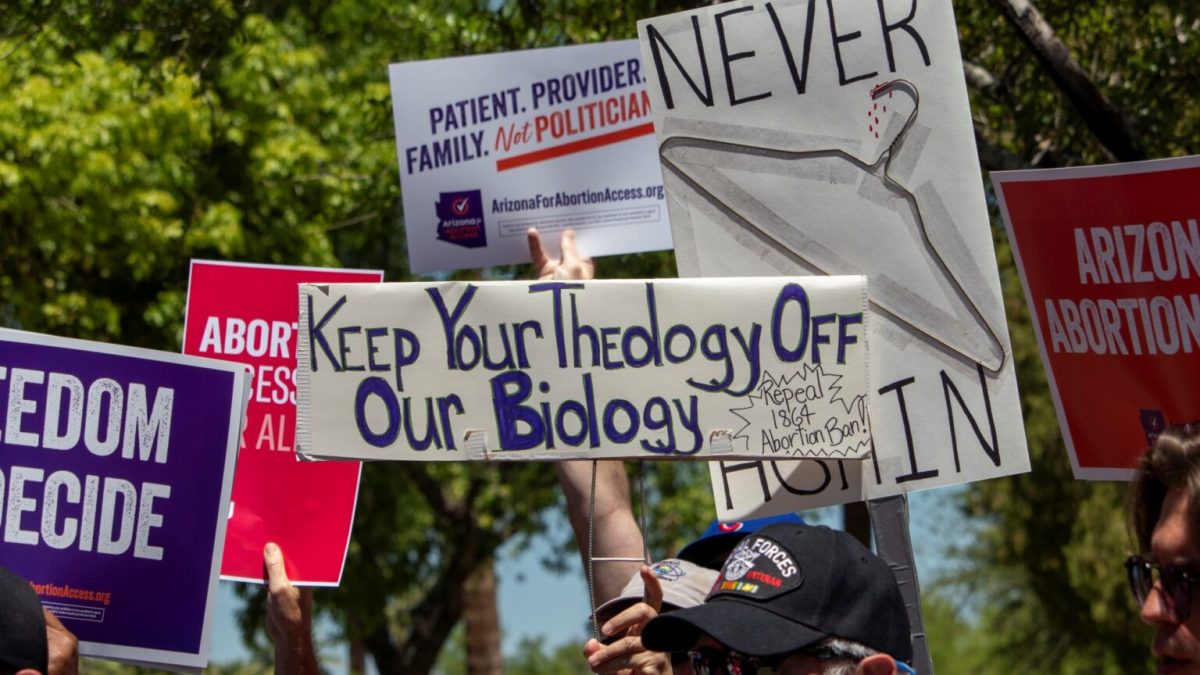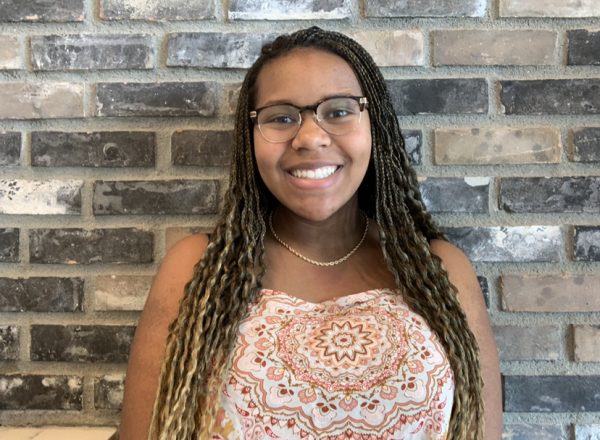This story originally appeared in Arizona Luminaria.
Southern Arizona dignitaries from business, education and politics gathered to hear Arizona Gov. Katie Hobbs give a state of the state report on Tuesday, Jan. 23.
Hobbs was greeted with rounds of applause and took a moment to embrace Tucson Mayor Regina Romero before taking the stage at the Tucson Convention Center.
“Now, I think we can all agree it certainly hasn’t been easy. But Arizonans didn’t send us to the Capitol to solve easy problems or take the easy way out,” Hobbs said, beginning her speech with a grin.
And it certainly has not been easy for the Democratic governor, navigating bills making it to her desk from a Republican majority in the state legislature. She has been dubbed a veto governor by the political press after vetoing a record 143 bills.
Hobbs spoke about state affairs and the progress of her agenda going into the 56th legislative session. The event was hosted by the Tucson Hispanic Chamber of Commerce along with other sponsors.
Hobbs catered her speech to the issues that affect Southern Arizonans the most and her plans to address them.
Here are three takeaways from the speech in Tucson.
Takeaway 1: Infrastructure
Hobbs announced a project Southern Arizonans have been waiting on for years: a $95 million investment from the federal government for major improvements to Interstate 10 between Tucson and Phoenix.
“So many of us have come together to advocate for this funding,” Hobbs said.
In September, Hobbs traveled to Washington, D.C., along with Gila River Indian Community Governor Stephen Roe Lewis, to meet with U.S. Secretary of Transportation Pete Buttigieg to make clear to him that improving I-10 is important to Arizonans.
“By securing this investment we are not only improving our state’s infrastructure,” Hobbs said, “we are propelling Arizona’s economy forward and ensuring a prosperous future for all.”
Affordable housing was another focus area for Hobbs. While Arizona’s economy is strong, she said, the housing affordability crisis has erased feelings of prosperity for many people.
Arizona had the largest increase in rent in the nation and Tucson rents have risen more than 30% since the beginning of the pandemic, according to the Pima Council on Aging.
While addressing the issue, Hobbs shared a personal story of her housing experience.
“I have personally felt the fear and uncertainty of not knowing how you’re going to make your next mortgage payment,” the governor said. “That’s why I will always fight just as hard for your family as I fought for mine, and I will never stop working to find solutions to the housing affordability crisis.”
This past year, Hobbs worked with the legislature to direct $150 million to affordable housing programs. Last week the legislature officially awarded more than $14 million to organizations in Tucson that support this effort, including $4 million to the city of Tucson and $7 million to Old Pueblo Community Services.
Hobbs also said the state has allocated money to help provide legal aid to more than 1 million more Arizonans who are facing eviction or housing insecurity. Hobbs said there has been an historical investment to create more affordable housing for middle-class families.
“These actions should only be the first of many we take to help ensure longtime residents, young professionals, and middle-class Arizonans are protected from being priced out of the communities and state they love,” Hobbs said.
For context, an annual count of people experiencing homelessness found 60% more homeless people in 2023 than 2018 in Pima County. And last year eviction filings in Pima County returned to pre-pandemic levels after a federal government freeze on new eviction filings was lifted.
Takeaway 2: The border
Hobbs addressed the flow of immigration and how it is affecting the state. Hobbs told the room of local leaders that she could not begin without first addressing the failures of the federal government when it comes to the southern border.
Hobbs referred to it as “a failure decades in the making under both Democratic and Republican administrations.”
Hobbs said she feels fortunate to have partners within México and Sonora to work collaboratively on this issue.
One of Hobbs’s earliest trips was to Nogales, Sonora to meet with Mexican President Andrés Manuel López Obrador and Sonora Governor Alfonso Durazo to discuss “vital border infrastructure projects and to make clear that the Arizona-México relationship is valuable, strong and will continue to be prosperous for us all.”
Hobbs appointed what she referred to as “a slate of diverse, highly capable experts” to the board of the Arizona-México Commission that she chairs. She said the commission is already working closely with Sonora and is ready to take this partnership to the next level.
“Together with our Mexican counterparts I know that we will continue to build impactful partnerships that will increase commerce, trade, tourism, and so much more,” she said.
In her state of the state speech on the opening day of the legislative session earlier this month, Hobbs said that at the end of last year, her administration launched Operation SECURE that created an office specializing in border coordination to work in conjunction with the Arizona Department of Homeland Security.
In her Phoenix version of her state report, Hobbs called out the Biden administration on the Lukeville situation, saying the decision to close the Lukeville port of entry “did nothing to actually solve our immigration crisis but did hurt businesses and families.”
“My administration worked tirelessly to reverse this short-sighted action by the federal government and took extraordinary steps – including sending the National Guard to the border – to bring security and common sense to this situation,” she continued.
In this legislative session, Hobbs said that she will seek ongoing funding for this new operation to, “better coordinate our border response and continue fighting this humanitarian, economic, and enforcement crisis.”
Hobbs also briefly mentioned that this office will help intercept the flow of Fentanyl into the state. Last October, the Tucson City Council passed a motion declaring Fentanyl a public health crisis in Pima County.
According to the 2022 annual report from the Pima County Office of the Medical Examiner, opioids were responsible for 69% of overdose deaths and, for the third consecutive year, fentanyl contributed to the greatest number of overdose deaths in Pima County of any single drug.
Hobbs wrapped up discussion on the border with promises. “To all those who call this state home, let me share this message: we will not shirk our responsibilities and we will not kick the can down the road for our children and the next generation to solve.”
Takeaway 3: Water
According to Hobbs, Arizona has been at the forefront of water conservation efforts thanks to efforts made by generations of bipartisan leaders.
Hobbs said that she will “continue working with everybody — farmers and agricultural interests, urban and rural communities, local and regional entities — to find the solutions we need to ensure our water future is secure for tomorrow and for generations.”
Hobbs shared an example of her willingness to work with others in an agreement she negotiated with neighboring states, Nevada and California, to conserve at least 3 million acre-feet of water, enough for 9 million homes, by 2026.
Last year, Hobbs created a bipartisan Water Policy Council, which includes leaders from native nations and water leaders from across the state with a wide range of experiences, to work together to “strive to do more through expanding public-private partnerships, increasing conservation, exploring new technology, and maintaining a steadfast commitment to strengthening protections where needed,” Hobbs said in Tucson.
Hobbs said the council has embodied these goals with a series of common sense recommendations to secure Arizona’s water future.
A report from the Arizona Department of Water Resources showed the Phoenix area is facing a groundwater shortage of 4.9 million acre-feet over the next 100 years.
An acre-foot of water is enough to supply two to three homes per year, according to the Arizona Department of Water Resources.
Hobbs’ remarks about water conservation concluded with a positive promise to continue her efforts in this realm.
“We all recognize that our state is growing and we must continue to adapt while maintaining our long-held status as a national leader in water management,” Hobbs said. “Our water standards are the key to our strong economy. I refuse to sacrifice them for unchecked growth. But I will continue in Arizona’s bipartisan tradition of growing our economy while protecting our state’s most precious resource.”




